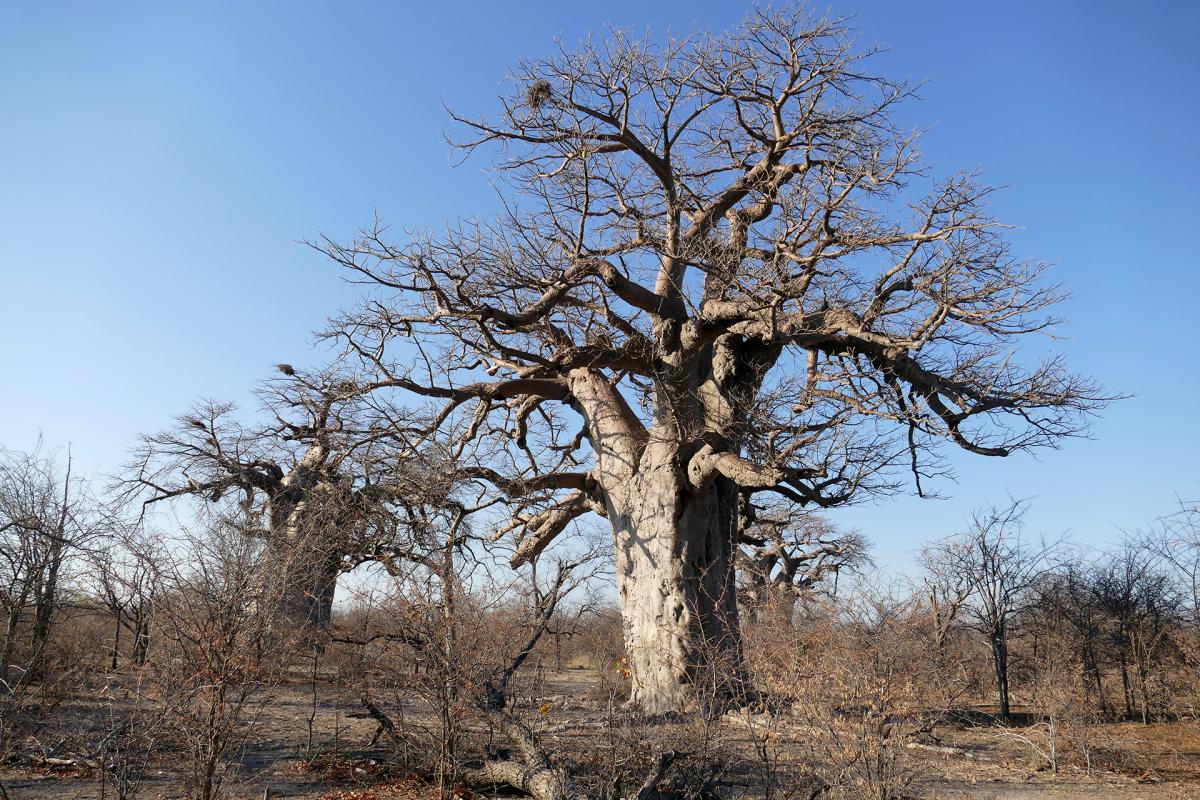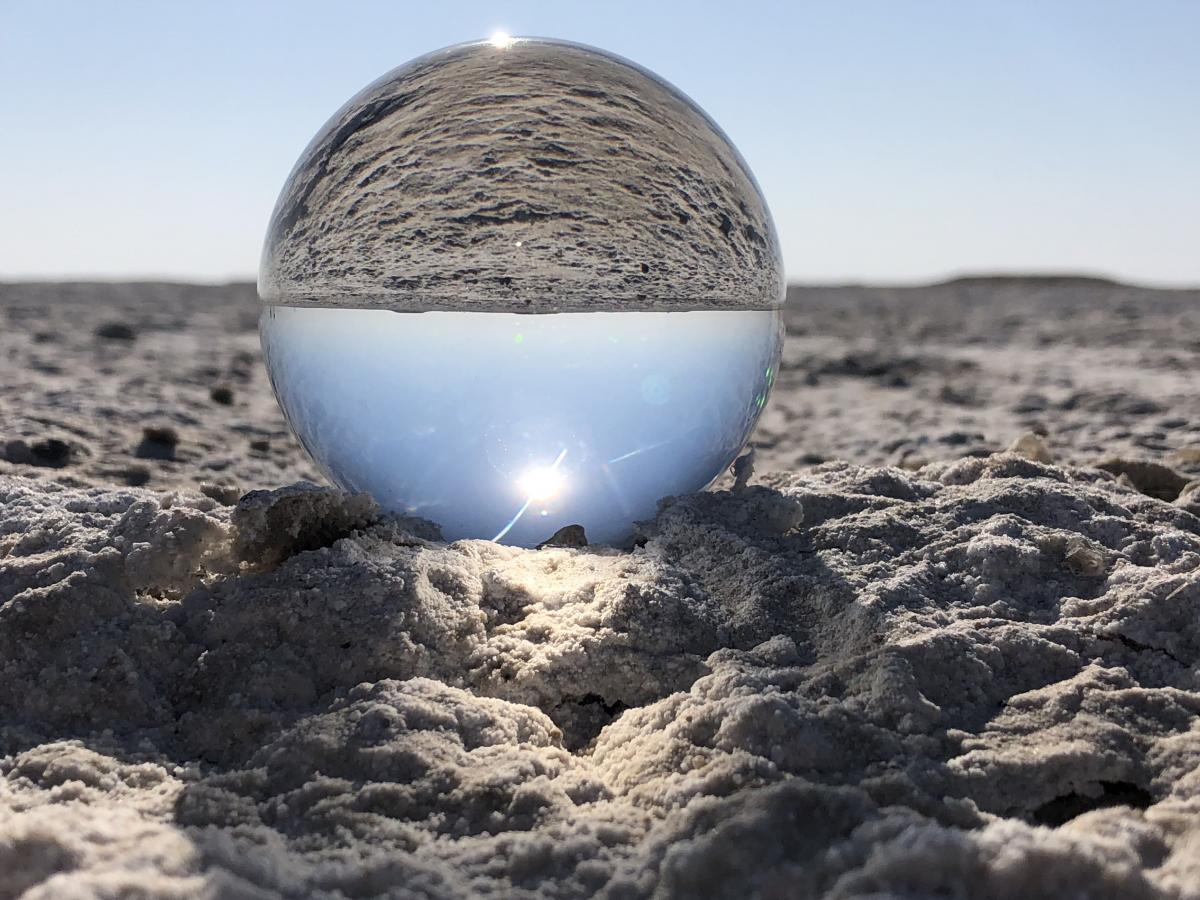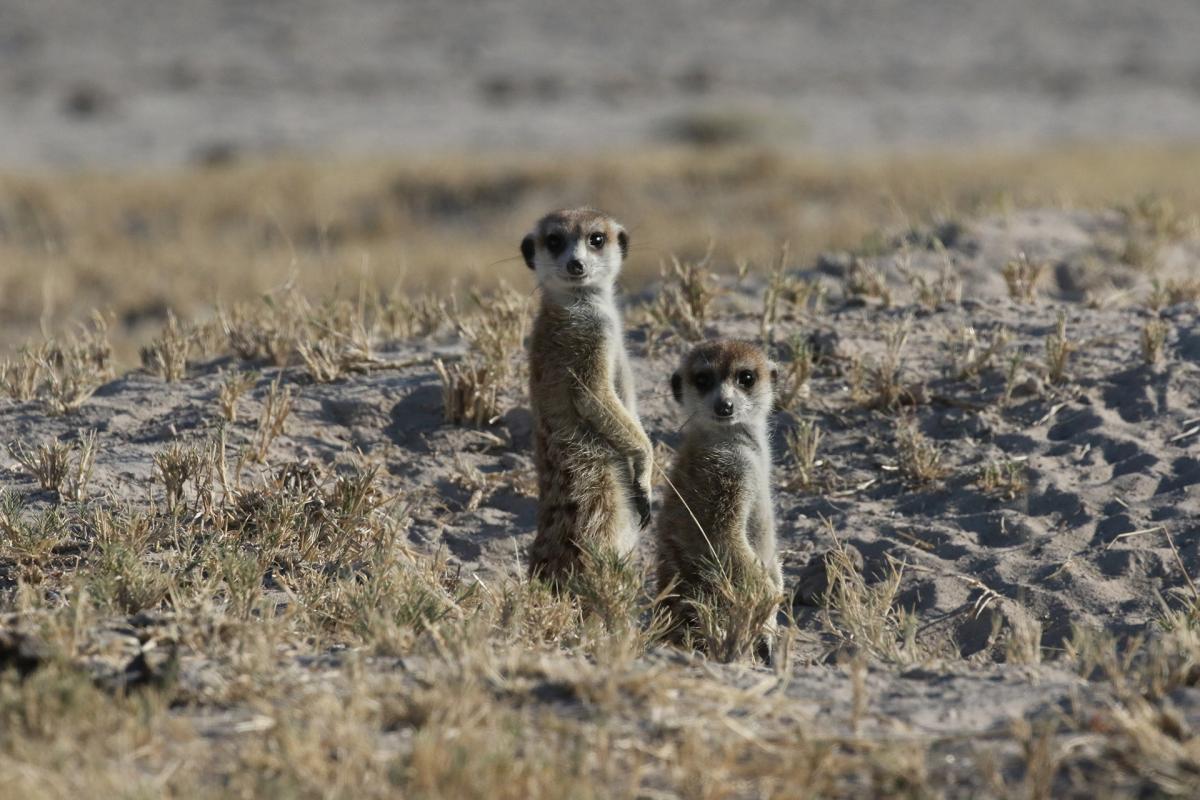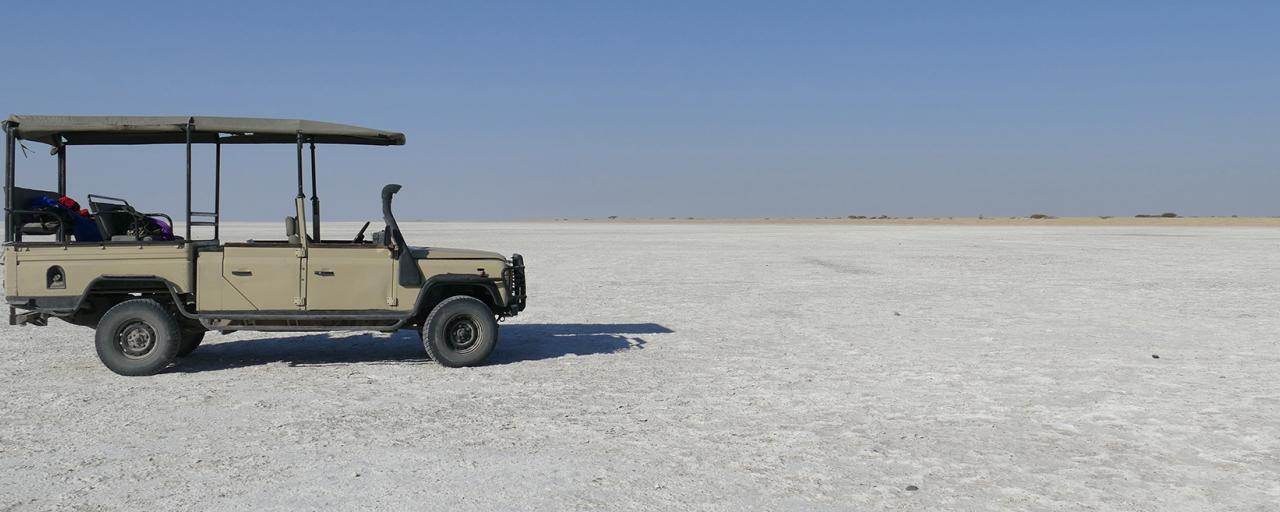Submitted by SafariADV on Tue, 2019-11-12
We are in Botswana at the village of Gweta and this morning we got up early to go see the Ntwetwe Pan at the Makgadikgadi Pans Complex; also this morning we go by car with our friend Chif and the 4 Chinese girls of yesterday afternoon, we are now a close-knit team!
This morning it is chilly and Chif distributes the fleece blankets, but as soon as he leaves the icy air cuts our faces: we put on the wool hat and lower it over our eyes and lift the neck of the fleece and put on our sunglasses, in this way there is not a square centimeter of our face exposed to the cold, on the other hand we look like two improvised robbers.
We pass by the part of pan where we were yesterdayto see the sunsetand where the mopane bushes are found, Chif tells us that elephants really like the roots of mopane so they drop the tree to eat the roots; but the roots of mopane are also used by the local population, they boil them in water and then they drink the decoction that seems good for stomach ache and diarrhea.
The mopane tree is also the home to the mopane caterpillar that is eaten by the local population, in fact it happens to see in the local markets baskets full of dried caterpillars.

The mopane caterpillar they first remove the intestine then boil it and then dry it to be preserved; to be able to eat it, it is boiled again or fried.
The mopane caterpillar lays its eggs right on the leaves of the mopane, from the eggs the caterpillar, or larva, is born, that lives on the tree and, at a certain point of its life, descends from the plant and goes on the ground, here it digs the earth and it goes into the subsoil where it passes to the state of pupa; it stays there until the rainy season comes when it comes out of the earth in the form of a butterfly.
The process of metamorphosis of some insects fascinates me a lot.
We arrive at a beautiful baobab tree just as the sun is rising, what a sight this panorama is; we take some photos, impossible not to take them, and then we continue.
We cross the whole area of the mopane bushes and continue to head South, at a certain point the mopane become more and more rare and then disappear and give way to a grassy area of low and yellow grass, then even the grass thins out more and more. and gives way to halophytic plants, that are able to survive in places where there is a high salt component.
Finally the immense white expanse of salt of the Ntwetwe Panopens in front of us, a show difficult to describe in words, not even the photographs make the idea of this splendor.
We have already seen some of these dimensions in the past, the Sua Pan at Kubu Island, always here in Botswana and the Pan of the Etosha National Park in Namibia, but each time they succeed in kidnapping us with their beauty and desolation; in fact, nothing grows here because the surface is extremely salty and no type of plant or shrub could survive.

Our Chinese friends launch into an exaggerated number of selfies and real photo shoots, their social profiles will burst with likes in the coming days; instead we enjoy the wonder of this remote place.
When we leave behind the Ntwetwe Pan with its blinding glare we stop in the neighboring area where there is a boy sitting on the ground, there is a merkaat colony!
We approach it and some merkaat are out of the dens, some are busy digging we don't know what, others are in an upright position, when they assume this position it is because they are sentinel to spot possible predators.
They are too cute and never stand still, we take pictures in bursts and we make videos; they are so beautiful and funny that we would like to take them home with us!
We get back in the car and head North, there are no other stops planned and Chif casually drives his Land Rover on the track, more sandy and partly more compact and full of curves to avoid the trees.
At 10:30 am we return to the Gweta Lodge and leave for our campsite; it's time for another coffee after breakfast before dawn, it's essential to continue our day.



